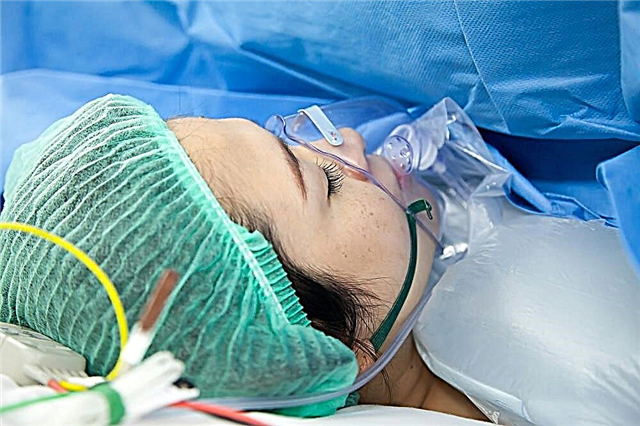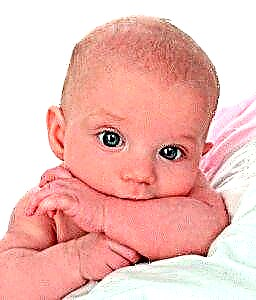
Often from women you can hear complaints that the ovary hurts after ovulation. What assumptions are not made about this on women's forums! It is believed that this is almost the first sign of pregnancy, they are afraid that the matter is in the disease, an urgent need to consult a doctor. With what such pains are actually connected and what really hurts, this article will tell.

Causes
The human body is designed so that any processes associated with a violation of the integrity of any tissue are associated with painful sensations of one intensity or another. In the process of ovulation, from a biological point of view, nothing more than a rupture of the follicle membrane occurs. And it is this fact that can be perceived by the woman's brain as a painful impulse.
Ovaries - paired organs, sex glands. In each of them, from birth, a girl has a supply of follicles with immature eggs inside. In one menstrual cycle, starting with puberty and ending with menopause, one follicle matures, which grows and ruptures, which makes it possible for the germ cell to exit and, which is not excluded, its subsequent fertilization. Rarely, double maturation occurs, and then two eggs are released, which significantly increases the likelihood of a multiple pregnancy.

In the middle of the cycle, the mature follicle, which has increased to 22-24 mm, becomes thinner under the action of luteinizing hormone, its membrane breaks and releases an egg into the abdominal cavity. It is quickly picked up by the villi of the fallopian tube, pulling it into the ampullar part of the oviduct. In order to promote the movement of a motionless and clumsy female reproductive cell along the fallopian tube towards the uterus, the musculature of the oviduct contracts rhythmically.
At the site of the follicle on the ovary, a corpus luteum begins to form from the remnants of its membrane - a gland that will provide the female body with progesterone during the second half of the cycle. If there is no pregnancy, then this gland will die in 11-13 days and menstruation will begin.

Knowing these fundamentals of a woman's physiology, it is easy to understand why the ovary hurts after ovulation:
- due to a violation of the integrity of its shell, which has its own nerve endings;
- due to injury to blood vessels during rupture;
- due to irritation of the peritoneum, which causes the outpouring of free fluid (an oocyte developed in it inside the bubble), as well as a small amount of blood in the abdominal cavity at the time of rupture.
Sometimes women mistake for pain in the ovary several other pains, also associated with the ovulation process, for example, contraction of the muscles of the fallopian tubes, which work to set the egg in motion. In this case, the pain is pulling in nature, women say that it pulls, as with menstruation.
Needless to say that pain may have nothing to do with ovulation, for example, with gynecological inflammatory processes, with infection, tumors. And therefore it is very important to learn to distinguish and recognize the nuances of pain, to know the symptoms in which it is time to see a doctor.

Important! Not everyone experiences pain in the ovarian area, although the ovulation mechanism is the same for everyone. They are more susceptible to women with a low pain threshold and high excitability of the central nervous system.
Learning to understand sensations
Knowing how ovulation occurs, we can safely say that some pain in the right or left ovary is normal, this is an individual feature of the female body during ovulation. Localization of pain can tell in which ovary the egg has matured in this cycle. If it hurts from both sides at the same time, it is likely that ovulation was double from different sex glands.
A very important distinguishing feature of ovulation pain, which helps to identify it from pathologies, is the time and duration of the discomfort. Normal physiological sensations usually appear on the day of ovulation or the next day and last no more than 1-2 days. If the pain occurs later or lasts longer than two days, you should consult a doctor, as this can be a sign of a wide variety of pathologies.
A very alarming sign is pain in combination with a fever, which lasts for more than a day. The appearance of atypical discharge in combination with pain is also a reason for visiting a doctor.
If the pain is complemented by a feeling of severe weakness, a decrease in pressure, then you need to call an ambulance, it is possible that the follicular cyst ruptured.

Pain is usually not a sign of pregnancy: at such an early stage, as a rule, there is no pain. About a week after ovulation, when the embryo is implanted, a slight pulling girdle pain in the lumbar region is permissible. The ovaries do not hurt.
But stabbing pain in the area of the ovary before the date of the onset of menstruation or after a delay is an alarming sign of a possible ectopic pregnancy.
Lower abdominal pain can be misinterpreted by a woman as ovarian pain. In fact, appendages can hurt (with inflammation, adnexitis), an infrequent, but rather dangerous complication of a follicular cyst can occur - torsion of the leg or rupture. Pain may be accompanied by disruption of the ovaries, dysfunction, morphological dystrophic changes. Even old adhesions left over from previous surgeries can be the cause of pain. The doctor will help you to understand the true causes of pain in more detail.

How to relieve discomfort?
With physiological monthly symptoms, treatment is not required. But it is still worth reporting the symptom to the doctor at a scheduled annual visit to the gynecologist. An ultrasound of the pelvic organs with an assessment of the condition and size of the ovaries will help to understand if everything is in order. Unfortunately, medicine cannot offer anything special for ovulatory pain, except for recommendations to be patient, because this is not for long.
But if the pain bothers, you can take pain relievers, antispasmodics. In such a case, a woman with a tendency to ovulatory pain should have in her home medicine cabinet "No-Shpu" and "Spazmalgon" or "Spazgan", and "Solpadein", and "Mig", and "Ketorol" will help. It is only important to remember that you should not take painkillers if you are planning to conceive a baby, in this case you should do with No-Shpoy.
A warm bath (not a hot one, but a warm one) and a warm heating pad on the stomach help to alleviate the condition. But such measures should be resorted to only if there are no inflammatory processes in the pelvic and abdominal cavity. From folk remedies, you can recommend tea with chamomile flowers, juniper or viburnum.
If conception is not planned, then you can consult a doctor with a request to choose oral hormonal contraceptives. They act overwhelmingly on the process of follicle maturation, suppress ovulation, follicle rupture does not occur, and in this regard, the woman does not feel the pain associated with the ovulatory process.
If such drugs are not taken, it is recommended to monitor your ovulation so as not to miss the symptoms of a possible illness and to make sure that the pain is really related to the period of ovulation. It is recommended to reduce physical activity during the oocyte release and for several days later.





